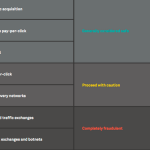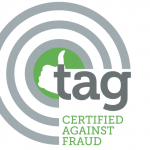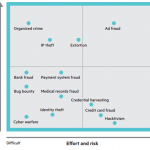The Day Of Reckoning For Ad Tech? It Has Arrived
The Day Of Reckoning For Ad Tech? It Has Arrived
by Marco Ricci , Op-Ed Contributor, October 2, 2017
It was only a matter of time. News that a client (Uber) is suing its mobile media buyer (Fetch Media) for ad fraud and misrepresenting the effectiveness of its mobile ads was always inevitable after P&G marketing chief Marc Pritchard blew the whistle on the widespread lack of transparency in online ads earlier this year.

This isn’t some token court case. Uber is seeking a minimum of $40 million in damages — a sum guaranteed to cause any media agency’s directors some sleepless nights. Fetch’s defense is that the agency severed its contract with Uber months ago because it wasn’t paying the various suppliers it had engaged to buy media on the company’s behalf.
Whichever party wins out, we’re sure this won’t be the last time that keen lawyers will pay attention to the dissatisfaction of online marketers.
We’re likely to look back on ad fraud as the great marketing scandal of our time. But in much the same way that Watergate took time to filter into the public consciousness, media agencies (and some clients) have been guilty of failing to properly engage with this problem, even after all the debate over the past 12 months.
In many cases this is not malicious or deliberate malpractice. Ad tech is a complex business, and its shadow side — the practice of measuring (and charging for) fake audiences or platforms — is even murkier. The fact that it involves criminal gangs that are in some cases funding terrorism from the media budgets that have been fraudulently skimmed off makes it urgent to tackle, but also a worrisome topic for many to address.
Research conducted for WPP agency The&Partnership showed that media budgets are being effectively stolen to the tune of $16.4 billion — double the amount of the previous estimate by the ANA. This escalation is due to the fact that the fraudsters are constantly coming up with new ways to con agencies into booking ads that will ultimately never be seen by humans.
Many agencies have been aware that ad fraud is something they need to be seen to be tackling. Unfortunately, their responses have been totally insufficient. Some simply added a couple of extra columns to their regular client reports detailing campaign results. There would be a yes or no for whether the ad was placed in a brand safe environment (a BS column — seriously!), plus another yes or no for whether fraud was suspected.
This kind of spoon-feeding is superficial at best, and reflects the difficult truth that many agency people just don’t understand where to begin in approaching this problem.
A tick-box response also fails to effectively acknowledge the scale and complexity of the problem.
One of the biggest misconceptions that is still prevalent in the industry is that if you can show that a brand’s ads appeared on legitimate websites, there is no problem with ad fraud. This is incorrect because it fails to take into account that in the majority of cases it is the traffic that is fraudulent, not the platforms the ads appear on.
So-called “click farms” are set up by the criminals to fake the clicks of human hands, using sophisticated artificial intelligence technology. So it might look as though an ad has been seen many times, but these are fake clicks that will never result in a sale. This is also why measuring the success of a campaign from click rates — rather than conversions — is a fruitless activity.
This click fraud exists across the board, ripping off brands whether they are running display ads or search, where fake clicks are used to artificially inflate keyword bidding prices
It’s an issue that has become endemic to an extent that agency chiefs are fearful of what they might uncover if they begin to encourage their clients to audit online media buying in a more precise way. Clients, meanwhile, have been happy to hear the reassurances.
It’s impossible to tell how the Uber-Fetch case will conclude. But if it serves as a salutary warning to agencies to ramp up the level of their tech investment when it comes to ad fraud auditing, it might actually do the industry some good.
MediaPost.com: Search Marketing Daily
(37)













